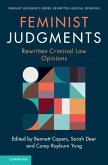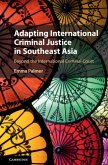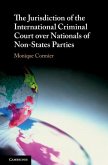The archives produced by international courts have received little empirical, theoretical or methodological attention within international criminal justice (ICJ) or international relations (IR) studies. Yet, as this book argues, these archives both contain a significant record of past violence, and also help to constitute the international community as a particular reality. As such, this book first offers an interdisciplinary reading of archives, integrating new insights from IR, archival science and post-colonial anthropology to establish the link between archives and community formation. It then focuses on the International Criminal Tribunal for Rwanda''s archive, to offer a critical reading of how knowledge is produced in international courts, provides an account of the type of international community that is imagined within these archives, and establishes the importance of the materiality of archives for understanding how knowledge is produced and contested within the international domain.
Dieser Download kann aus rechtlichen Gründen nur mit Rechnungsadresse in A, B, BG, CY, CZ, D, DK, EW, E, FIN, F, GR, HR, H, IRL, I, LT, L, LR, M, NL, PL, P, R, S, SLO, SK ausgeliefert werden.
Hinweis: Dieser Artikel kann nur an eine deutsche Lieferadresse ausgeliefert werden.









